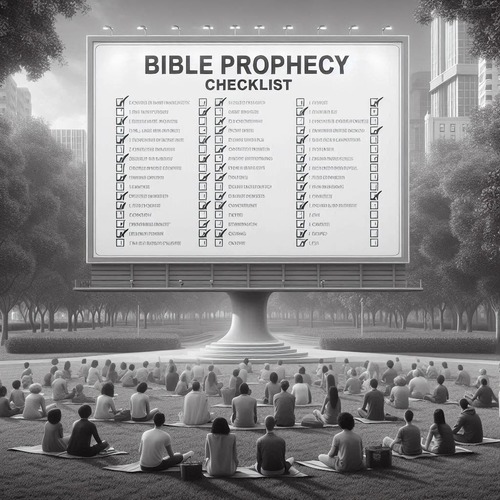King Ahaziah’s Death: Are the Bible Accounts Contradictory?
Critics of the Bible’s reliability often point to the death of King Ahaziah as a clear contradiction in Scripture. At first glance, 2 Kings and 2 Chronicles seem to tell completely different stories about how and where this wicked king met his end. But does this really represent an error in God’s Word, or are we missing something important?
As believers committed to the inerrancy of Scripture, we approach such challenges with both intellectual honesty and theological conviction. The Westminster Confession reminds us “the infallible rule of interpretation of Scripture is Scripture itself” (I.9). When apparent contradictions arise, our first instinct should be to let Scripture interpret Scripture, seeking harmony rather than assuming error.
THE TWO ACCOUNTS: WHAT DO THEY ACTUALLY SAY?
- 2 Kings 9:27-28 tells us when Jehu began his bloody purge of Ahab’s house, King Ahaziah of Judah “fled by way of Beth Haggan. But Jehu followed him, and said, ‘Shoot him also!’ And they shot him in his chariot at the Ascent of Gur, which is by Ibleam. Then he fled to Megiddo, and died there.”
- 2 Chronicles 22:9 provides a different perspective: “And he searched for Ahaziah; and they caught him (he was hiding in Samaria), and brought him to Jehu. When they had killed him, they buried him, ‘because,’ they said, ‘he is the son of Jehoshaphat, who sought the Lord with all his heart.’”
On the surface, these accounts seem irreconcilable. One has Ahaziah dying at Megiddo after being wounded, the other has him captured in Samaria and executed by Jehu directly. But surface readings often miss the deeper harmony of Scripture.
KING AHAZIAH’S DEATH: THE ACCOUNTS ARE COMPLEMENTARY, NOT CONTRADICTORY
The most compelling Reformed explanation recognises these as complementary accounts of a complex sequence of events, not contradictory reports. Here’s what likely happened:
Ahaziah initially fled toward Megiddo when Jehu’s revolution began (2 Kings account). However, he was wounded during the chase at Gur, near Ibleam. Rather than dying immediately at Megiddo, he was captured by Jehu’s forces while attempting to hide somewhere in the broader Samaria region. He was then brought before Jehu and executed (as in the Chronicles account).
The key insight is that ancient Near Eastern historical writing often focused on different aspects of the same events, emphasising the details most relevant to each author’s theological purpose. The author of Kings emphasised the chase and Ahaziah’s desperate flight, while the Chronicler focused on his ultimate capture and the manner of his execution.
This isn’t “harmonisation for harmonisation’s sake”—it’s good historical methodology. When we have two ancient sources describing the same events, we naturally try to understand how they fit together rather than immediately assuming one must be wrong.
KING AHAZIAH’S DEATH: THE BIGGER PICTURE
The case of King Ahaziah’s death illustrates a broader truth about Scripture: apparent contradictions often dissolve under careful examination, strengthening rather than weakening our confidence in God’s Word. This has been the experience of Reformed believers for centuries, from Calvin to modern scholars who continue to find Scripture reliable in all its parts.
Critics may point to passages like this as evidence against biblical authority, but Reformed believers see them as opportunities to demonstrate the internal consistency and historical reliability of Scripture. When we approach these challenges with proper hermeneutical tools and theological conviction, we repeatedly discover God’s Word stands firm.
The death of King Ahaziah reminds us God’s judgement is both certain and complete. Whether we focus on the chase or the capture, the wounding or the final execution, the message remains the same: those who reject the Lord and align themselves with wickedness will face His righteous judgement. That’s a truth worth defending, and a Word worth trusting.
KING AHAZIAH’S DEATH: RELATED FAQs
Why didn’t the Bible’s authors just give us one clear, detailed account of King Ahaziah’s death? Reformed scholars like John Frame emphasise that biblical authors wrote with specific theological purposes, not modern historical comprehensiveness. The author of Kings focused on the broader narrative of Israel’s monarchy and God’s judgement, while the Chronicler emphasised lessons for post-exilic Israel about faithfulness to God. Each account serves its inspired purpose perfectly without needing to include every detail.
- How do we know which details to emphasise when harmonising accounts like this? According to Reformed hermeneutics, we should treat all biblical details as equally inspired and true, then seek to understand how they fit together historically. Vern Poythress argues apparent contradictions often reveal our limited understanding of ancient contexts rather than actual errors. The goal isn’t to choose which account is “more accurate” but to understand how both accounts accurately describe different aspects of the same events.
- Don’t other ancient historians also have contradictory accounts of the same events? While secular ancient sources do contain contradictions, Reformed theologians like BB Warfield have long argued Scripture’s divine authorship sets it apart. Unlike purely human historical works, Scripture claims divine inspiration, which Reformed doctrine holds extends to historical details. When secular historians contradict each other, we expect human error; when Scripture appears contradictory, we expect our understanding needs refinement.
What about the different burial accounts—don’t they also contradict? Calvin’s commentary on Chronicles suggests both accounts can be true: Ahaziah’s servants initially brought his body toward Jerusalem (2 Kings), but the burial ultimately occurred with some honour due to his connection to godly Jehoshaphat (2 Chronicles). Ancient burials could involve multiple stages and locations, making both accounts historically accurate.
- How can we be sure this harmonisation isn’t just wishful thinking? Reformed epistemology, as developed by scholars like Alvin Plantinga, argues that believing Scripture is true is a properly basic belief for Christians, not wishful thinking. Additionally, this harmonisation follows standard historical methodology used with any ancient sources. John Murray emphasised Reformed believers should pursue rigorous scholarship while maintaining theological convictions about Scripture’s truthfulness.
- Why should modern readers care about getting these Old Testament details right? RC Sproul frequently taught that if Scripture contains errors in historical details, we have no sure foundation for trusting its spiritual truths. The doctrine of biblical inerrancy isn’t about defending trivia—it’s about maintaining confidence that God’s Word is completely reliable. When Jesus said “Scripture cannot be broken” (John 10:35), He was defending the authority of Old Testament historical narratives.
What if new archaeological evidence contradicts these harmonisations? Scholars like Kenneth Kitchen consistently argue archaeology has repeatedly confirmed rather than contradicted biblical accounts. If apparent conflicts arise, the Reformed approach is neither to abandon Scripture nor ignore evidence, but to recognise our understanding of either the biblical text or the archaeological data may be incomplete. History shows patient scholarship usually resolves such tensions in favour of Scripture’s reliability.
KING AHAZIAH’S DEATH: OUR RELATED POSTS
Editor's Pick

Do Christians Need Holy Shrines? Why the Reformed Answer Is No
Walk into a medieval cathedral and you'll encounter ornate shrines, gilded reliquaries, and designated "holy places" where pilgrims gather to [...]

I Want To Believe, But Can’t: What Do I Do?
"I want to believe in God. I really do. But I just can't seem to make it happen. I've tried [...]

BC 1446 or 1250: When Did the Exodus Really Happen?
WHY REFORMED SCHOLARS SUPPORT THE EARLY DATE Many a critic makes the claim: “Archaeology has disproven the biblical account [...]

Does God Know the Future? All of It, Perfectly?
Think about this: our prayers tell on us. Every time we ask God for something, we’re confessing—often without realising it—what [...]

Can Christian Couples Choose Permanent Birth Control?
Consider Sarah, whose fourth pregnancy nearly killed her due to severe pre-eclampsia, leaving her hospitalised for months. Or David and [...]

Bone of My Bones: Why Eve Was Created From Adam’s Body
"This at last is bone of my bones and flesh of my flesh!" Adam's joyful exclamation upon first seeing Eve [...]

Is Calvinism Fatalism in Christian Disguise? Think Again
We hear the taunt every now and then: "Calvinism is just fatalism dressed up in Christian jargon." Critics argue Reformed [...]

Can Churches Conduct Same-Sex Weddings?
In an era of rapid cultural change, churches across America face mounting pressure to redefine their understanding of marriage. As [...]

Gender Reassignment: Can Christian Doctors Perform These Surgeries?
In the quiet of a clinic, a Christian physician faces a challenging ethical question. A patient sits across the desk, [...]

‘What Sorrow Awaits You Who Are Rich…’: What Does Jesus Mean?
The words hang in the air like a sword over comfortable Christianity: “What sorrow awaits you who are rich, for [...]
SUPPORT US:
Feel the Holy Spirit's gentle nudge to partner with us?
Donate Online:
Account Name: TRUTHS TO DIE FOR FOUNDATION
Account Number: 10243565459
Bank IFSC: IDFB0043391
Bank Name: IDFC FIRST BANK






